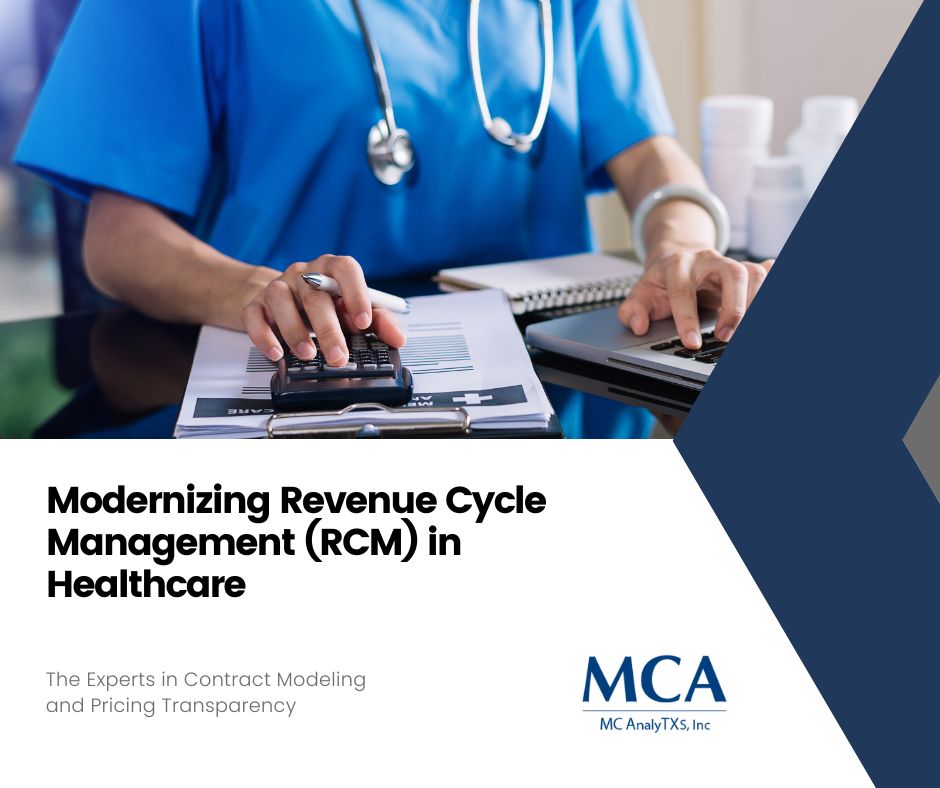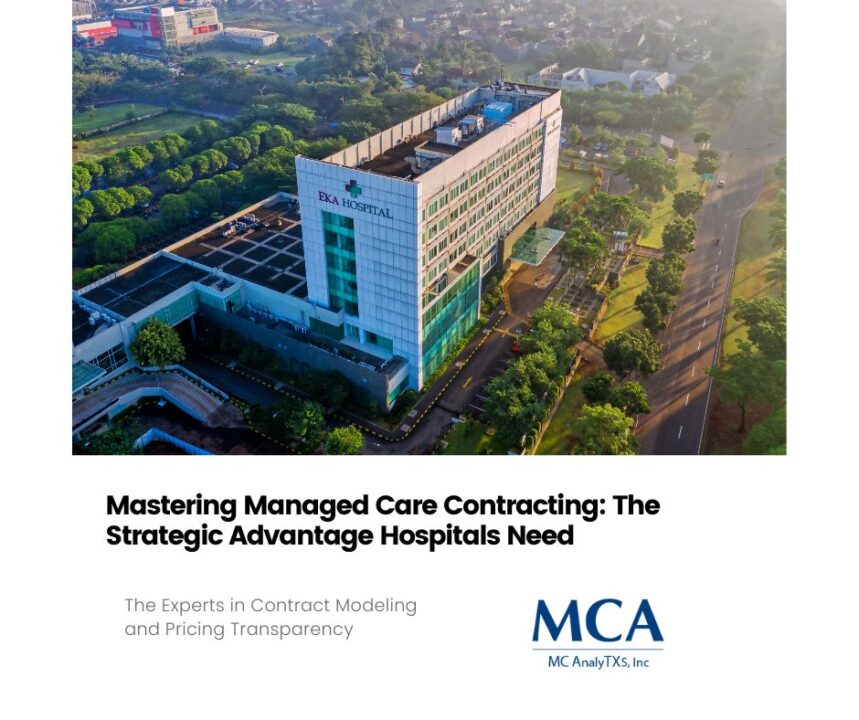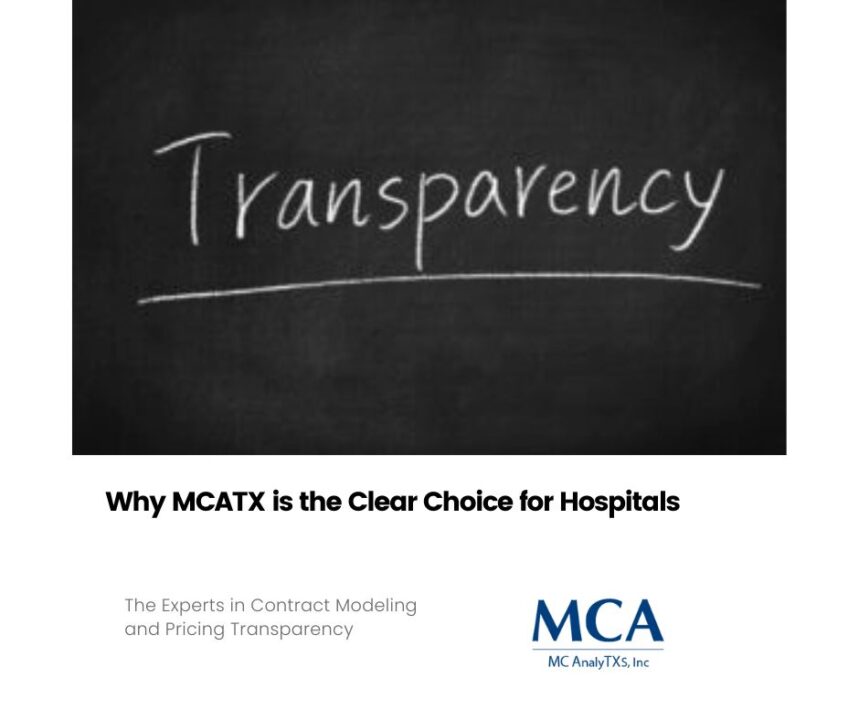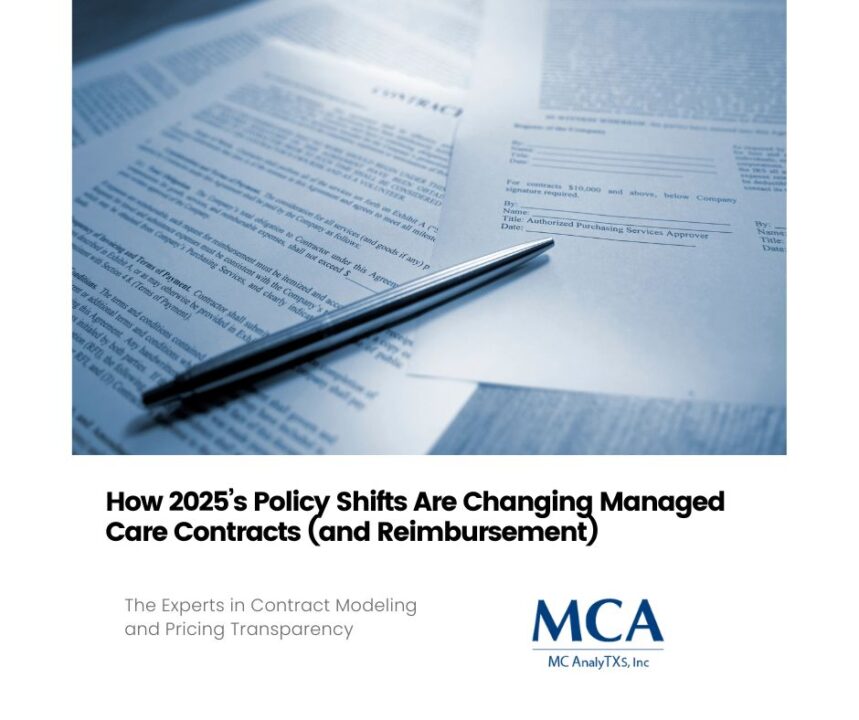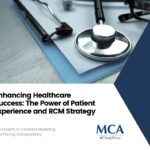
Enhancing Healthcare Success: The Power of Patient Experience and RCM Strategy
March 18, 2024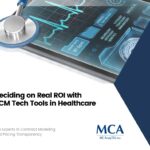
Deciding on Real ROI with RCM Tech Tools in Healthcare
March 22, 2024Revenue Cycle Management (RCM) is the critical thread that binds patient care to fiscal sustainability. In the past, RCM has been mired in manual processes that were not only arduous and error-prone but also antithetical to the efficiency and agility demanded by the industry’s rapid evolution.
Healthcare administrators and finance managers are on the cusp of a revolution, one that promises to streamline operations, enhance patient experiences, and bolster bottom lines. Modernizing RCM is not just a choice; it’s a necessity in a time where doing more with less is the healthcare industry’s mantra.
This comprehensive guide explores the challenges of traditional RCM, outlines the core benefits of modernization, and provides actionable strategies to initiate and sustain the modernization process. With this knowledge, healthcare entities stand to revolutionize their RCM, setting a new standard in financial health and operational excellence.
The Era of Modern RCM
Gone are the days when RCM was synonymous with piles of paperwork and labyrinthine spreadsheets. The digital age has ushered in unprecedented opportunities to transform RCM into a beacon of efficiency and a driver of growth. For healthcare organizations, modernizing RCM represents a strategic imperative that can no longer be overlooked.
The Rise of Efficiency and Accuracy
In the current healthcare climate, the stakes have never been higher. Manual processes are not just labor-intensive; they are also rife with errors that can lead to significant revenue leakage and compliance pitfalls. Modern RCM is about more than just streamlining; it’s a quest for precision and reliability that underpins financial health.
A Vision of Scalability
Scalability is the hallmark of modern RCM. With the capability to effortlessly adapt to changes in volume and complexity, modern RCM is not tethered to the limitations of human capacity. It’s a framework designed to grow and evolve alongside the organization it serves.
The Drawbacks of Manual RCM
The move towards modernization is, in part, a response to the plethora of issues that dominate the narrative surrounding manual RCM processes. These antiquated methods no longer align with the expectations of a healthcare industry poised for transformation.
Inefficiencies that Stifle Progress
Manual RCM processes are replete with inefficiencies that impede both the speed of transaction and operational nimbleness. Delays in billing and an overreliance on human intervention compound into a cumbersome, slow-moving system that cannot keep pace with the demands of a modern healthcare setting.
The Time-Consuming Nature of Tradition
Time is a precious resource, and healthcare providers find themselves devoting an inordinate amount of it to manual RCM processes that yield diminishing returns. The opportunity cost of these antiquated methods cannot be overstated, as it often comes at the expense of more value-added patient care initiatives.
Limits to Growth and Flexibility
Amidst the exponential growth and technological advancements, manual RCM processes fall woefully short. They lack the flexibility to accommodate the complexities and dynamism of the modern healthcare landscape, leaving organizations stagnant in a rapidly evolving space.
Modernizing RCM: The Panorama of Benefits
The decision to modernize RCM is not just a matter of technological advancement; it is a strategic investment that reaps a multitude of benefits.
Automation for Accuracy and Speed
Automation is the linchpin of modern RCM, offering a level of accuracy and speed that is unattainable through manual labor. By automating routine, rule-based tasks, healthcare organizations can minimize errors, accelerate billing cycles, and enhance overall operational efficiency.
Improved Revenue Capture and Billing Processes
A hallmark of modern RCM is its ability to optimize revenue capture and billing processes. Through automated checks and balances, modern RCM solutions are adept at identifying missed charges and ensuring that all services rendered are duly compensated.
Enhanced Compliance and Minimized Risks
Regulatory compliance is a moving target in the healthcare sector. Modern RCM incorporates adherence to the latest regulations into its automated processes, leading to reduced audit risks and a more defensible financial stance.
Key Strategies for RCM Modernization
The transformation from manual to modern RCM is not an overnight endeavor. It requires a concerted approach that integrates technology, analytics, and human resource management.
Implementing RCM Software Solutions
Choosing the right RCM software is a crucial first step in the modernization process. Software solutions should be selected based on the specific needs of the healthcare organization, with a focus on functionality, integration with existing systems, and vendor support.
Leveraging Data Analytics for Insights
Modern RCM is driven by data, and analytics plays a pivotal role in unlocking insights that can inform strategic decision-making. By harnessing the power of data, healthcare organizations can optimize processes, improve financial performance, and enhance the patient experience.
Staff Training and Change Management
While technology is a critical enabler, the human element must not be forgotten. Staff training and change management initiatives are essential to the successful adoption of modern RCM practices. Empowering employees with the skills and knowledge they need to operate in the new paradigm is a key ingredient in the recipe for success.
Conclusion: The Imperative of RCM Modernization
The imperative to modernize RCM in healthcare could not be more pronounced. By shedding the shackles of manual, error-prone processes, health organizations can pave the way for a future that is anchored in efficiency, accuracy, and growth.
RCM Modernization as a Competitive Edge
In an industry defined by competition, modernization is a clear differentiator. Healthcare organizations that optimize their RCM processes stand to gain a significant competitive edge, not just in terms of financial performance, but also in their ability to provide exceptional patient care.
A Call to Action for the Healthcare Sector
The time to act is now. With the tools and technologies at our disposal, there has never been a better opportunity to usher in a new era of RCM in healthcare. For administrators and finance managers, the call to action is clear: it’s time to initiate the transformation, and in doing so, secure the future of your institution in an uncertain, yet promising, landscape.
In the age of doing more with less, manual RCM processes belong in the past. It’s time for healthcare leaders to take the reins, harness the power of technology, and steer their organizations toward a future where operational excellence and patient care go hand in hand.


